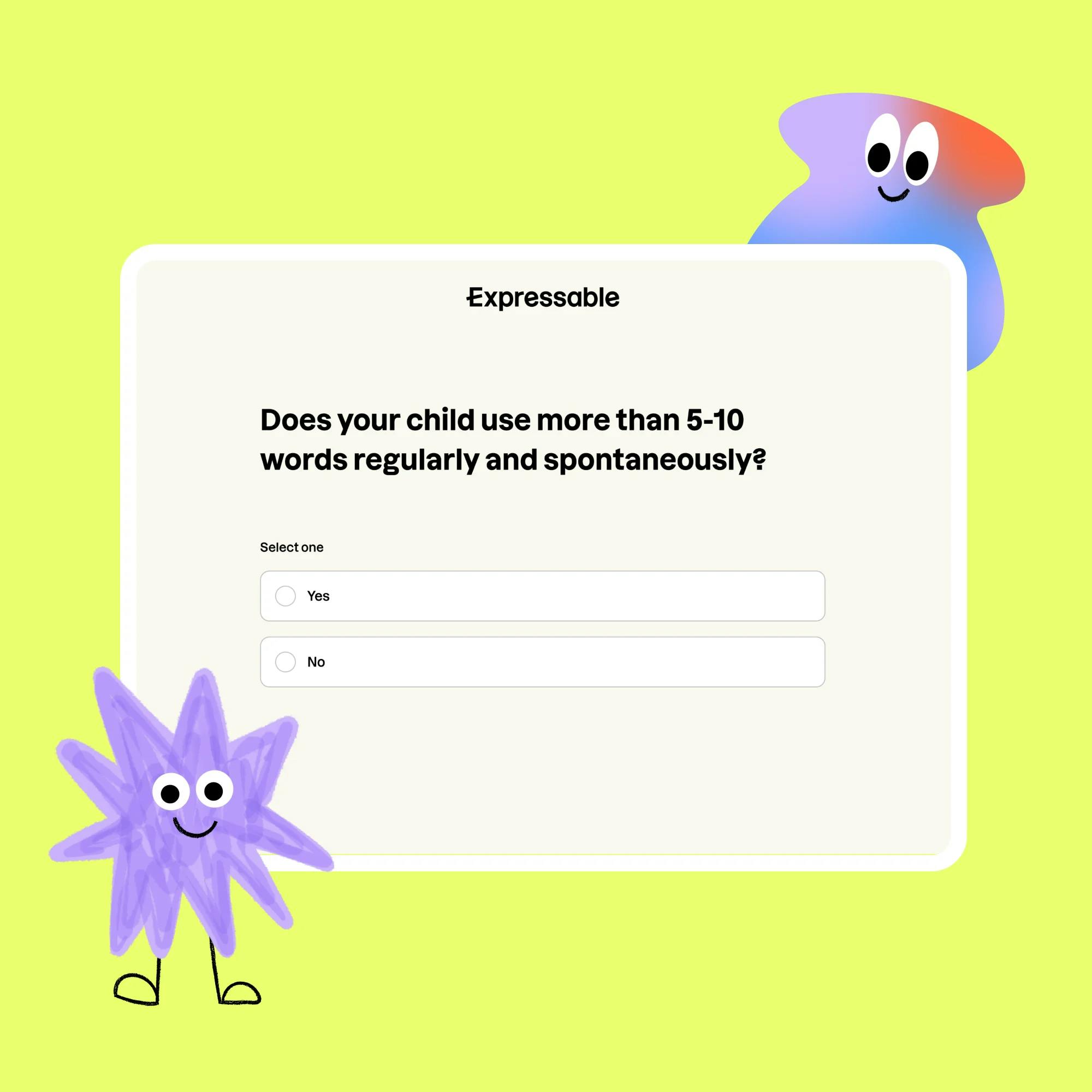
Why Teenagers Receive Speech Therapy and How It Works
 Abby Barnes, M.S., CCC-SLP
Abby Barnes, M.S., CCC-SLP
How old is too old for speech therapy? That’s a trick question! Some people think therapy is only for children, but in reality, it can be helpful for all ages–even adults and teenagers.
If your teen seems to be struggling with communication, read on. In this article, we’ll discuss everything you need to know about speech therapy for teenagers, including how to find a speech therapist who treats teens.


Does speech therapy work for teenagers?
Yes! Any person, at any age, who isn’t at the level they should be in their communication abilities can benefit from speech therapy.
Think about it like this: If someone is having trouble developing the skills needed to be a confident communicator, it’s best to step in and provide help. There’s no magic age at which speech therapy is no longer beneficial. Similar to improving your cooking, piano playing, or athletic skills, all people can continue to learn and grow in their abilities–no matter their age!
Reasons a teenager may need speech therapy
There are many reasons an adolescent may receive speech therapy.
Speech therapy for articulation helps people learn to correctly pronounce sounds that they’re struggling with. A teenager can have trouble with any speech sounds. However, some of the trickier errors that can linger if not properly treated in childhood occur with the /s/, /r/, and /l/ sounds.
Expressive and receptive language
A teen may have trouble with receptive language, expressive language–or both! Let’s break down what these are. Receptive language is a person’s ability to understand what is spoken to them. Expressive language is a person’s ability to make their wants, needs, and ideas known through clear communication. If a teen has receptive language problems, they may have trouble understanding questions asked in conversation or at school. They may also have a tough time following directions. This could be due to difficulty following the structure and exact meaning of sentences, or difficulty understanding vocabulary terms being used. If a teen has problems with expressive language, it may be hard for them to construct sentences that make sense. They may even misuse words if they’re struggling with vocabulary usage. Another tricky area of expressive language development is the ability to tell a story or retell an event. Let’s say your teen is telling you about something that happened at soccer practice. If their speech is hard to follow, and the story they’re telling stops and starts several times, this could be a sign of an expressive language delay. As a whole, any challenges with clearly communicating thoughts and needs is a sign that speech therapy may be necessary.


This is a major area where some adolescents need help. Social pragmatics refers to the social aspect of language and communication. This includes social rules such as:
Maintaining eye contact during a conversation
Not standing too close to the person with whom you’re speaking
Staying on topic in the conversation
Having a two-way, rather than a one-sided, conversation
Even the ability to understand sarcasm and figurative language can be a challenge for teenagers who struggle with social communication.
Think of social language as the “icing on the cake” of being a good communicator. If you know what to say, but don’t know how or when to say it, your message may not come across the way it’s intended! Treatment for social language is extremely beneficial for teenagers struggling in this area and can help them make friends and become the best communicators they can be.


This is another challenging area for some teenagers. Stuttering is the disruption of normal, fluent speech sounds and movements. It can sound like a person stammering over the first sound in their sentence, or repeating a word over and over. There can even be instances of “blocks,” where a person appears frozen and has trouble making the mouth movements to continue what they’re trying to say.
It’s best to start speech therapy as soon as stuttering is observed. For some teenagers, this may be an issue they’ve dealt with all their life. But sometimes, stuttering can occur later in childhood or adulthood.

This type of therapy can help improve the quality of the voice. It can help people who have an underlying issue causing problems with the vocal cords, such as vocal fold paralysis, vocal nodules, and underlying neurological problems. Vocal volume, strength, and pitch are usually targeted in voice therapy.


Signs your teenager may need speech therapy
If you're wondering if your teenager may need speech treatment, here’s a quick checklist of signs to look for. An adolescent who needs therapy may exhibit just one of these signs, or several:
Difficulty pronouncing certain speech sounds
Speech that is hard to understand
Stuttering while speaking
Difficulty clearly expressing thoughts and needs
Poor ability to answer questions
Difficulty telling a story and explaining something in a sequential order and in a way that makes sense
Voice issues, such as hoarseness or inability to speak loudly enough
Not easily able to follow social rules in conversation with others:
Difficulty keeping eye contact
Poor ability to use appropriate body language
Difficulty participating in a conversation by staying on topic and asking and answering questions
Inability to understand sarcasm or figurative language
If you sense that your teenager may have trouble in one or more of these areas, schedule an evaluation with a speech-language pathologist. Let’s talk a little about what this involves!


How to find a speech therapist for your teenager
When you’re first considering speech therapy, it may feel a little overwhelming. Just take it one step at a time, and you’ll find exactly what you need.
As a speech-language pathologist, I can offer these tips:
First, talk with your child’s doctor or pediatrician. Even though your teen isn’t so little anymore, their pediatrician can still be a great source of information. They may have recommendations for a qualified speech therapist. Plus, in many cases, a doctor’s script is needed for insurance to approve visits for therapy.
If you want to research for yourself (and I recommend you do!), talk with friends whose children have had speech therapy. And be sure to look online. Take time to read reviews of several therapists. Reviews can give you a good sense of a therapist’s expertise, working style, and personality.
It’s best to find a therapist who specializes in working with teenagers. As you do your research, be sure to put this question at the top of your list. And keep teletherapy in mind as an option. It can be an effective and convenient way to receive speech therapy, especially for busy teens.


What does speech therapy for teenagers look like?
During your initial visit, the speech therapist will complete an evaluation. This will allow them to see exactly what areas of communication your child is struggling with.
If the therapist sees areas that need improvement, they will recommend treatment. Sessions are typically held once or twice a week. During these sessions, your speech therapist will target goals they have hand-picked for your child. Each session will focus on these goals so that the speech therapist can measure progress over time.
Speech therapy can be personalized to your teenager’s likes and interests. For instance, if your child enjoys games, their speech-language pathologist may choose one to complete while practicing. It could be a card game, a strategy game, even trivia about your teen’s favorite TV show! Speech therapists who work with teenagers know that their interests differ from those of younger kids, so they’ll be sure to select tasks your child will enjoy.
Speech therapy can be personalized to your teenager’s likes and interests.
Of course, some teenagers may not need this extra motivation to participate. Many teens are self-motivated enough that they can simply come in and work with their speech therapist.
No matter what your child prefers, your speech therapist will always work to keep your child comfortable and encouraged. They know speech therapy can be challenging–and that therapy likely isn’t how a teen prefers to spend their free time. Your speech therapist will provide just the right balance to keep therapy motivating and purposeful.
Your involvement matters!
One important thing to note: Although your teen is more independent than a young child, their speech therapist should still involve you in therapy. They should provide frequent updates on your child's progress, as well as recommendations for home practice.
Read about the importance of parent involvement in speech therapy here.
Ensuring your child follows through on this home practice is key! Speech therapy sessions absolutely help teens gain the communication skills they need. But it’s the practice that happens between sessions, at home and during everyday life, that helps them progress even faster.
As a speech-language pathologist, I know that the therapy journey isn’t always an easy one. But if this is what your child needs, then looking into resources for speech therapy is the best thing you can do for them! It won’t be too long before your teenager is a grown adult, off on their own attending college or working. Establishing these foundational communication skills now is one of the most valuable things you can do to ensure their success.









